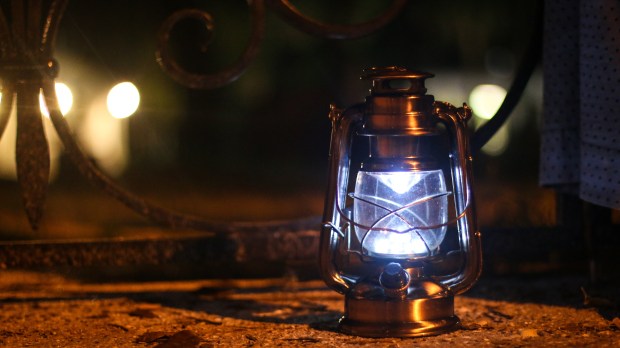I’m really not one for ghost stories. Although I’m on record as being pro-Halloween, I don’t like novels about hauntings and I have trained Netflix to never suggest any horror movies about Halloween. I don’t particularly enjoy scary movies, cackling witches, or disgusting monsters.
I don’t need dark, violent stories about revenge and hell. I don’t need the headache of trying to figure out just how not-Catholic the story is and if it might spiritually harm me, or if it will take me to an unhealthy head-space. Having to go to confession after watching an hour of television isn’t my idea of good entertainment.
I suppose, especially for parents, that this is an age-old question about Halloween (although there are also a surprising number of ghost stories about Christmas): Are ghost stories okay?
Catholic parents everywhere have their opinions about participating in Halloween and, if they do, what kind of costumes and celebrations are appropriate. Thus we have everything from little monsters out trick-or-treating with other neighborhood kids, to All Saints parties in which every costume is of a saint. And then there’s just settling for a generic harvest party around a bonfire. I’m wondering, though, where ghost stories fit into all of this.
What exactly is a ghost?
The difficulty with ghost stories, at least to me, is figuring out exactly what a ghost allegedly is. To what extent do we believe they actually exist and, if they do, how does that fit into our understanding of the afterlife? If they don’t exist, can they still have an imaginative walk-on role in our storytelling, similar to how we might tell a story about an alien creature in sci-fi or a hobbit living in Middle-Earth?
If there was an easy answer, I wouldn’t be writing this article, which is basically just me thinking out loud as a writer and a father of young children.
Here’s what I do know. There really isn’t a specific Catholic teaching about ghosts. The one clear teaching we have in the Catechism is, “all forms of divination are to be rejected,” which means no communication with demons, trying to contact the dead, or other forms of witchcraft intended to manipulate the spirit world.
The Church takes the reality of ghosts, or at least the demonic, seriously enough to warn us away from it. In my opinion, a ghost is, at most, a departed soul that has temporarily been permitted to appear in a visible form to people on earth for the sake of giving a warning or requesting a favor.
In the parable of the Rich Man and Lazarus, for instance, the Rich Man begs Lazarus to go back to earth and warn his brothers to live better lives. These “ghosts” don’t have the ability to wander the earth for extended periods of time looking to haunt us and make mischief. Their proper place is in Purgatory — or for the apparitions of saints, in Heaven.
Books and movies
When it comes to books and movies, it seems to me that we should look carefully at the role the ghost plays in the story. Is it a departed soul giving a warning? An apparition of a saint directing us to the love of Christ?
There are many ghost stories told in a Christian manner that are spiritually thoughtful. For instance, the ghost in Hamlet is almost certainly Hamlet’s father appearing from Purgatory. Charles Dickens, in A Christmas Carol, uses ghosts to warn Ebenezer Scrooge to change his life. The Jesuit priest and poet Gerard Manley Hopkins records ghost stories in his diary and later seems to use some it as source material for his poems.
G.K. Chesterton has written a ghost story. Depending on what you think of the characters in C.S. Lewis’s The Great Divorce, there might be ghosts in his work. There definitely are ghosts in the work of his friend and fellow Inkling, Charles Williams, whose novels, Lewis says, are full of, “ghosts, magicians, and archetypal beasts.”
A reminder
As a literary device, there’s clearly a place in the Christian tradition for ghosts. It’s a way of making the reality of the next life and the communion of saints more present to us by connecting the past, present, and future. It’s also a reminder that the choices we make in this earthly life really do matter. They have consequences in the next life for good or ill.
If anything, the cautionary tale that ghost stories offer is that it isn’t natural for a human soul to be disconnected from the body. Our bodies are vital to who we are, which is why our eternal destiny to receive real, resurrected bodies.
Ghost stories always leave me with the urge to hug my children tighter, physically taste the Eucharist on my tongue, light a fire in the fireplace, and generally revel in the physical, incarnated beauty that surrounds us. I do these things not because ghosts have made me afraid and I’m retreating to familiarity, but because they’ve reminded me how strange and wonderful it is to exist, and how thankful I am that God has made all things for us and promises to love us into eternity, body and soul.



